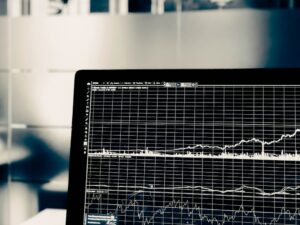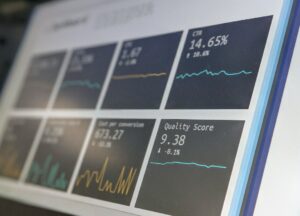Forex automated trading systems have become increasingly popular in recent years, with traders turning to them to help them make more profitable trades. These systems use algorithms and computer programs to identify potential trading opportunities and execute trades automatically. While there are certainly advantages to using these systems, there are also some disadvantages that traders should be aware of. In this article, we’ll take a closer look at the pros and cons of forex automated trading systems.
Advantages of Forex Automated Trading Systems
1. Increased Efficiency
One of the biggest advantages of using a forex automated trading system is the increased efficiency it can provide. These systems are designed to analyze vast amounts of data at high speeds, which can help traders identify potential trading opportunities more quickly and accurately than they could on their own. This can lead to more profitable trades and a higher overall return on investment.
2. Reduced Emotion
Another advantage of using forex automated trading systems is that they can help reduce the impact of emotions on trading decisions. When traders make decisions based on emotions like fear, greed, or panic, they are more likely to make mistakes and lose money. Automated systems, on the other hand, are not influenced by emotions and make decisions based solely on the data and algorithms they are programmed with.
3. Backtesting and Optimization
Forex automated trading systems also allow traders to backtest and optimize their strategies. Backtesting involves running a trading strategy on historical data to see how it would have performed in the past. This can help traders identify potential flaws in their strategy and make adjustments before using it in the live market. Optimization involves tweaking the parameters of a strategy to find the optimal settings for maximum profitability.
Disadvantages of Forex Automated Trading Systems
1. Lack of Flexibility
One of the biggest disadvantages of using forex automated trading systems is the lack of flexibility they provide. These systems are designed to follow specific rules and algorithms, which can limit the trader’s ability to adjust their strategy based on changing market conditions. This can be problematic in volatile markets, where quick adjustments may be necessary to avoid losses.
2. Technical Issues
Another potential disadvantage of using forex automated trading systems is the risk of technical issues. These systems rely on complex algorithms and software, which can be prone to bugs and glitches. A technical issue with the system could lead to missed trading opportunities or even losses if the system executes trades incorrectly.
3. Over-Optimization
Over-optimization is another potential risk associated with forex automated trading systems. This occurs when traders tweak their strategy to perform well on historical data but fail to account for the variability of the live market. Over-optimized strategies may perform well in backtesting but fail miserably in the live market.
Conclusion
Forex automated trading systems can provide several advantages for traders looking to increase efficiency and reduce the impact of emotions on trading decisions. However, there are also some potential disadvantages to be aware of, including the lack of flexibility, technical issues, and the risk of over-optimization. Ultimately, the decision to use an automated trading system should be based on the trader’s individual needs and preferences. It’s important to thoroughly research different systems and providers before making a decision to ensure that the system is reliable and well-suited to the trader’s goals and risk tolerance.






